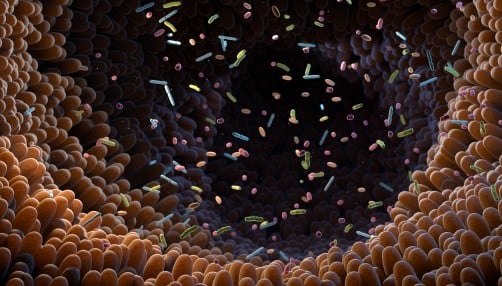BREAKING: A groundbreaking study from UCLA Health reveals that a child’s gut bacteria may significantly influence their emotional health later in life. Published in the journal Nature Communications, the research finds links between early gut microbiome composition and the risk of developing anxiety and depression by middle childhood.
This urgent discovery highlights that children with a higher presence of specific bacteria from the Clostridiales order and Lachnospiraceae family at age 2 may face a greater risk of internalizing symptoms like depression and anxiety by age 7.5. The study, led by Dr. Bridget Callaghan, indicates that the gut microbiome’s effect is tied to alterations in brain connectivity related to emotional processing.
The implications of these findings are profound. As Dr. Callaghan states, “By linking early-life microbiome patterns with brain connectivity and later symptoms of anxiety and depression, our study provides early evidence that gut microbes could help shape mental health during the critical school-age years.” If left unaddressed, symptoms of anxiety and depression can persist into adolescence and adulthood, underscoring the importance of early intervention.
This pivotal study draws on data from the Growing Up in Singapore Towards Healthy Outcomes (GUSTO) initiative, which collected comprehensive health information from children, including stool samples at age 2, brain scans at age 6, and behavioral assessments from caregivers at age 7.5. Researchers analyzed data from 55 participants to explore how the gut microbiome impacts brain activity and emotional health.
Past research focused primarily on infants and toddlers, leaving a gap in understanding how gut bacteria affect school-aged children’s mental health. This new study shifts the focus, emphasizing the potential long-term consequences of early gut health on emotional well-being.
The findings echo previous studies that have linked gut bacteria to stress responses and mental health in adults, suggesting that certain microbes may be more sensitive to stressors. Dr. Callaghan points out that identifying specific species within these bacterial groups will be crucial for future research. “Once we have that information, there are relatively straightforward ways to change the microbiome, like probiotics or diet, that we could use to address issues,” she explains.
As this research continues to unfold, it raises critical questions about how parents and caregivers can support children’s gut health to potentially mitigate mental health risks. The collaboration with the Agency for Science, Technology and Research’s (A*STAR) Institute for Human Development and Potential and other institutions amplifies the importance of this research within the global health community.
The urgency of these findings cannot be overstated. As parents, educators, and healthcare professionals seek to understand and improve children’s mental health, this study offers a new lens through which to view early development. Expect further developments as researchers delve deeper into the gut-brain connection and explore actionable interventions.
Stay tuned for updates on this developing story as we learn more about the pivotal role gut bacteria may play in shaping our children’s futures. This could change the way we approach mental health from infancy onward.







